Consistently making these food choices just might help extend your life.
We get it; the online world of health and wellness can sometimes feel like an overwhelming tundra of differing opinions and hot takes from a wide variety of experts and backgrounds. After a while, it can start to feel like you have to buy every new thing or change up your entire relationship with food just to live a “healthier life.” But in reality, there are small choices you can make on a semi-regular basis that actually make enormous impact in your overall health. More specifically, there are even simple food swaps that dietitians recommend for a longer life.
First, let’s look at the overall role our diet plays in our longevity: According to a study published in PLOS One, your dietary choices may be able to extend your life by up to a decade. The study says that whole grains, legumes, and other plant-based foods are helpful in slowing down the aging process. Additionally, an article published in Critical Reviews in Food Science and Nutrition states that along with whole grains and legumes, eating vegetables, nuts, and fruits while lowering your intake of processed and red meat can help reduce your risk of many age-related diseases.
If some of these foods don’t come as naturally to you, or you find it overwhelming to change up your diet in these ways, our dietitians have some super simple food swaps to make for a longer life that you can start doing today. Read on for their advice, and for more healthy aging tips, check out the 5 Eating Habits That Can Save Your Heart.
Choose salmon instead of steak
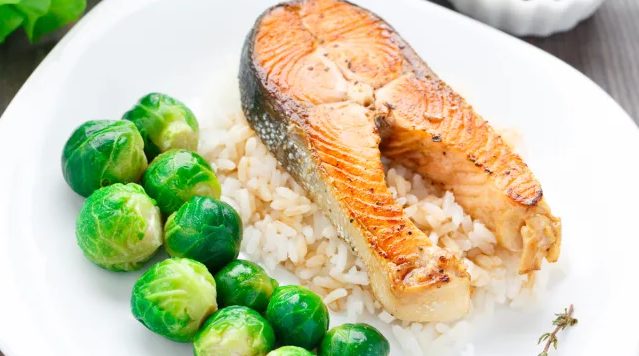
If you’re a red meat lover, you certainly don’t have to ditch it forever (unless advised otherwise by your doctor). However, swapping it out for salmon or other fatty fish whenever you can will certainly help your health as you age.
“I advise limiting red meat and choosing fish instead,” says Lisa Young, PhD, RDN, author of Finally Full, Finally Slim and member of our Medical Expert Board. “Grilled salmon, for example, is high in protein, lower in saturated fat than most red meat, and full of heart-healthy omega-3 fatty acids.”
According to the Mayo Clinic, omega-3 fatty acids can help your heart health by reducing inflammation, lowering triglycerides, reducing risk of blood clots, and lowering risk of heart disease and stroke, all of which are crucial for extending your life as you age.
Drink tea instead of soda

Excess soda consumption can contribute to a multitude of life-threatening health complications, such as increased risk of liver disease and insulin resistance, cardiovascular disease and mortality, and it has even been found to age your body’s cells more rapidly. We aren’t suggesting you get rid of it completely if it’s something that brings you small bursts of joy, but limiting it to a “once-in-a-while” treat and swapping it out for something less sugary can benefit your health tremendously. For easy swaps, our dietitians recommend tea, flavored seltzer, or natural juice.
“Green and black tea contain plant compounds called flavan-3-ols, and these compounds have been shown to support heart health, reduce cardiovascular mortality, and more,” says Lauren Manaker, MS, RDN, registered dietitian and author of The First Time Mom’s Pregnancy Cookbook and Fueling Male Fertility. “The Academy of Nutrition and Dietetics has provided guidelines for how many flavan-3-ols we should be consuming every day, which is 400-600 milligrams. Drinking 2 cups of green or black tea every day will provide a person with the recommended amount of flavan-3-ols.”
Swap out soda for seltzer or 100% juice

If tea isn’t your thing, Young suggests seltzer.
“Swapping soda for water or seltzer can save you hundreds of calories,” says Young. “For flavor, add a splash of lemon, orange, or cucumber, or throw in a few fruity ice cubes (pour your favorite juice into an ice cube tray and freeze for flavored ice cubes).”
If you’re looking for a fruit juice to mix with your seltzer, Toby Amidor, MS, RD, CDN, FAND, an award-winning nutrition expert and Wall Street Journal bestselling author of The Family Immunity Cookbook, suggests 100% pomegranate juice.
“The antioxidants found in POM Wonderful 100% Pomegranate Juice, called polyphenols, fight free radicals that can do damage to the body’s cells over time,” explains Amidor. “Specifically, the antioxidant anthocyanins are found in the arils of the pomegranate, while the pith contains ellagitannins, which are found to have anti-inflammatory and anti-cancer properties.”
Use whole grain bread instead of white bread
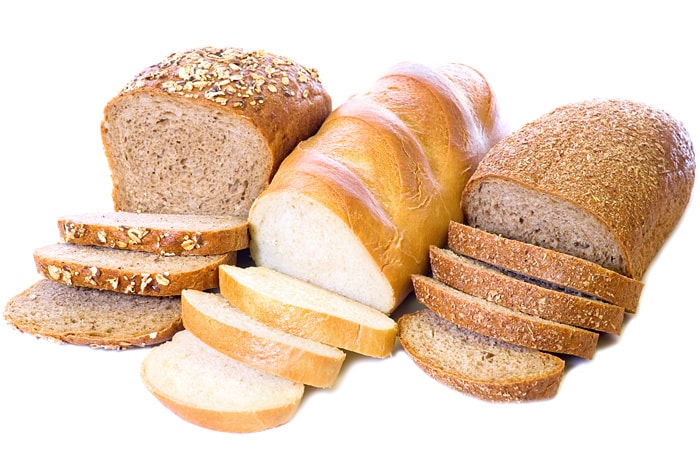
Despite what we’ve been told in the past about bread and carbohydrates, “grains and starches are not taboo and do not need to be avoided to be healthier and lose some weight in the process,” Young claims. However, the trick is in eating the healthiest types of grains.
“Whole grains are the best choice, as they are chock full of nutrients and fiber. Include brown rice, quinoa, and oatmeal instead of white bread, white rice, and white pasta,” says Young.
Manaker adds that whole grains are popular among people around the world who are living longer lives on average.
“Whole grains are a staple in the diets of people who live in specific ‘Blue Zone regions’ that follow a Mediterranean-style diet,” says Manaker. “For example, people of Ikaria in Greece eat plenty of whole grains on a regular basis and live, on average, 8 years longer than Americans. They also experience 20% less cancer, and half the rate of cardiovascular disease.”
Eat cauliflower rice instead of white rice
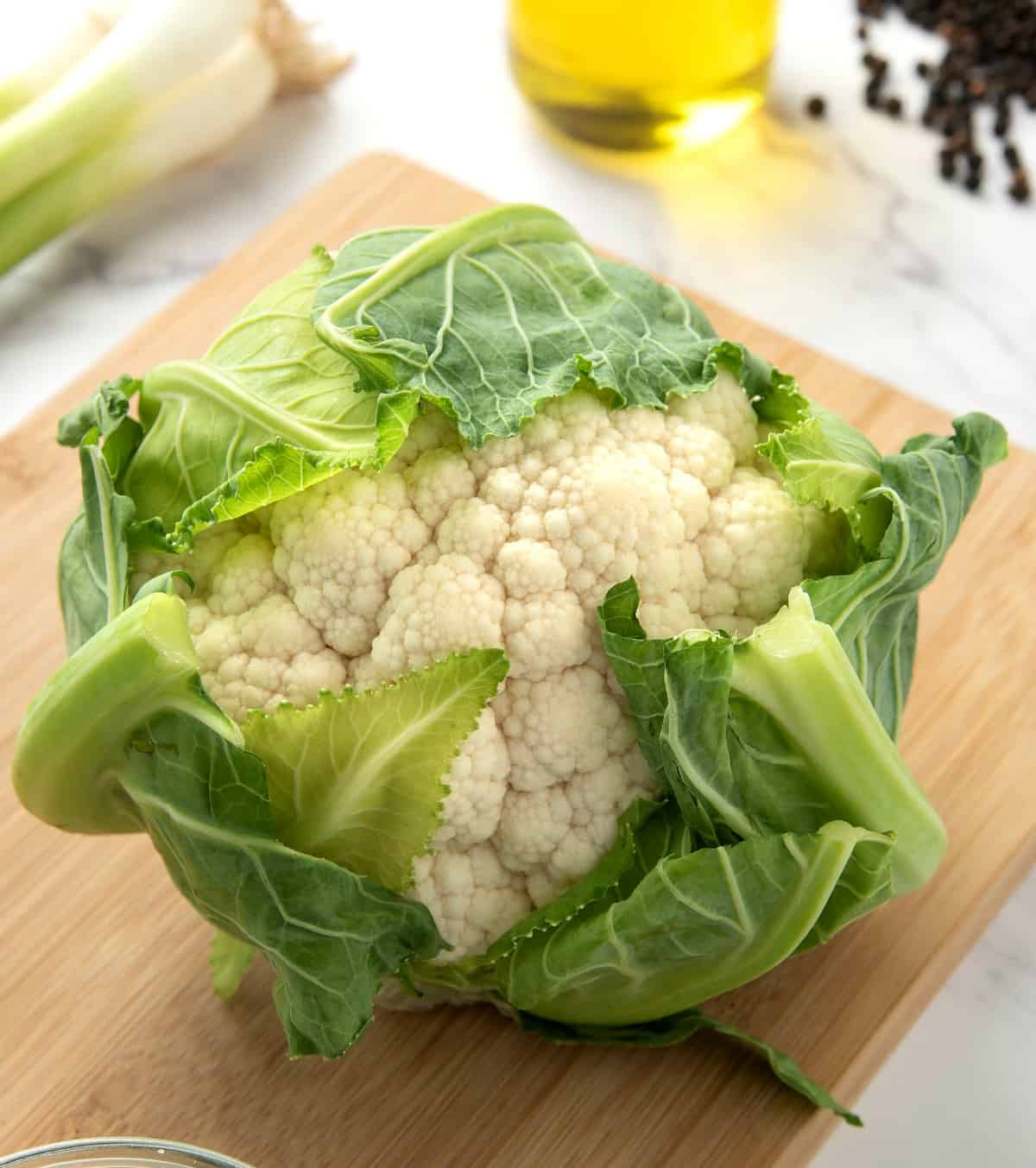
“Carbs aren’t bad, but making this switch can cut down on the amount of refined grains you consume,” says Trista Best, MPH, RD, LD, at Balance One Supplements. “Since white rice has had the outer layer removed, the bran, it has been processed to an extent and the fiber, B vitamins, and important antioxidants have been reduced significantly. By switching for cauliflower, you are adding back in fiber and antioxidants.”
According to Best, this is a helpful move overall, but the antioxidants that exist in cauliflower and not white rice “are necessary for cellular health and can help improve your longevity.”
“This is especially true for the compound sulforaphane, which stimulates intracellular antioxidants,” adds Best. “This compound has been shown to play a role in preventing the development and progression of chronic diseases.”
Top oatmeal with mixed nuts instead of sugar

Oatmeal can be a great breakfast when you’re wanting to focus on longevity because of its high-fiber content. In fact, oats have been found to lower cholesterol and age-related chronic inflammation. To add to oatmeal’s potential longevity benefits, Young also suggests adding nuts on top and skipping the added honey or sugar.
“The protein, fiber, and fat in nuts aid in satiety and help you feel full longer, so you may actually end up eating less during the day,” says Young. “Plus, nut eaters have also been shown to have a lower incidence of diabetes when compared to those who rarely ate them.”
Specifically, a study published in Journal of Aging Research found that walnuts had the best effects on healthy aging in middle aged women. So, next time you eat some oatmeal, don’t hesitate to pile up the top with some walnuts or another nut of choice.
Swap out sausage for beans in sauce recipes
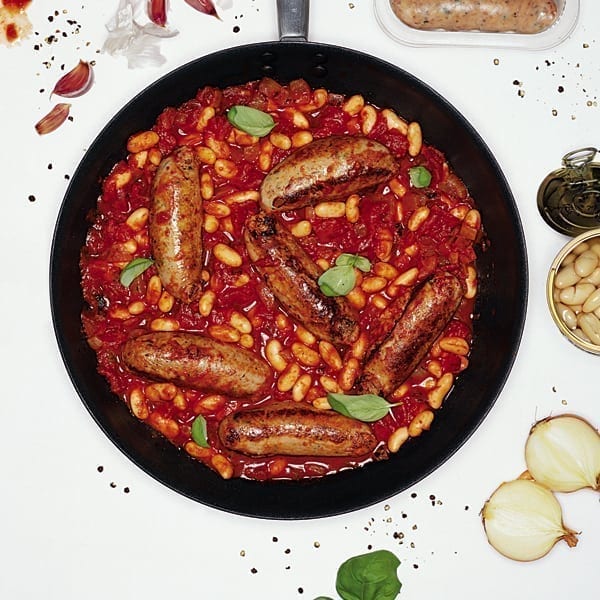
“Sausage can be high in salt and saturated fat, which are two nutrients that may not support a long life when consumed in excess,” says Manaker. “Instead of leaning on sausage for your next soup or sauce recipe, beans may provide a similar mouthfeel and is one of the best foods for a longer life.”
Opting for other forms of plant-based proteins when you can, like quinoa, chickpeas, etc. can be a helpful swap for a longer life, especially because according to Manaker, “Data shows that eating a plant-based diet is linked to reduced risk of early death, making this simple swap hugely impactful on your health.”
Eat cruciferous vegetables instead of fries
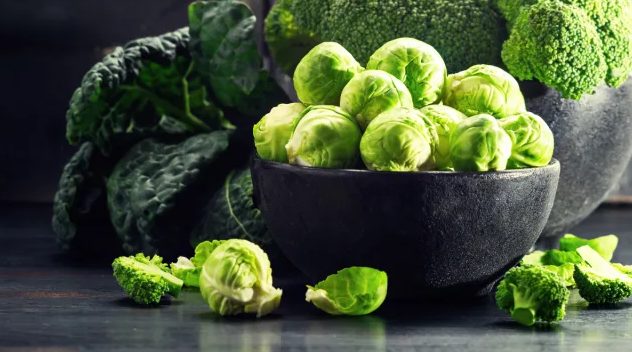
We’ll never, ever tell you to give up French fries, mainly because we never will. But occasionally swapping our fries for a side of vegetables can do wonders for your health.
“When you’re heading out to eat and the restaurant asks what you want on the side of your sandwich, choose the broccoli over fries,” says Amidor. “Cruciferous vegetables from the cabbage family like broccoli, cauliflower, Brussels sprouts, kale, bok choy, and mustard greens have been shown to possibly reduce the risk against certain forms of cancer like lung and colorectal. This family of vegetables also provides several carotenoids (beta-carotene, lutein, zeaxanthin), vitamins C, E, and K, folate, and is also a good source of fiber.”
Source: https://www.eatthis.com








